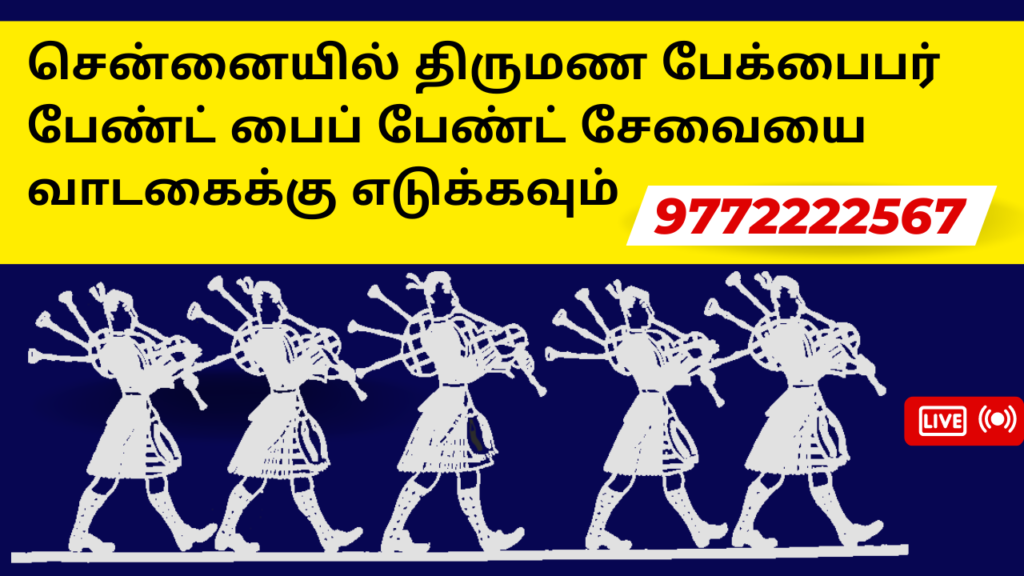Bagpiper Booking Advice
Ultimate Guide to Booking a Bagpiper for Your Event
Picture this: the soul-stirring wail of bagpipes fills the air, instantly transporting your guests to the misty highlands of Scotland. Whether it’s a wedding, funeral, or festive celebration, hiring a bagpiper can elevate your event to unforgettable heights. But how do you navigate the world of bagpiper booking advice to ensure you get the right performer at the right price?
Don’t worry—I’ve got you covered. This guide dives deep into everything you need to know about booking a bagpiper, from costs to attire to avoiding common pitfalls. Let’s make your event sing with the haunting melodies of the pipes!

Why Hire a Bagpiper?
Bagpipes aren’t just instruments; they’re a cultural experience that packs an emotional punch. Their distinctive sound can evoke joy, solemnity, or pride, making them a perfect addition to any event. But why should you consider bagpiper booking advice before jumping in? Because hiring a bagpiper isn’t like booking a DJ or a cover band—it’s a unique process that requires a bit of know-how to get it right.
The Unique Appeal of Bagpipe Music
There’s something magical about the bagpipes. Their bold, resonant tones cut through the air like a call to the soul. Whether it’s the triumphant march of “Scotland the Brave” or the mournful strains of “Amazing Grace,” bagpipes have a way of grabbing attention and stirring emotions. They’re not just music; they’re a statement. When you hire a bagpiper, you’re bringing a piece of history and tradition to your event, creating a moment your guests will talk about for years.
Perfect Events for a Bagpiper
Bagpipers shine at a variety of occasions. Weddings are a classic choice—imagine a piper leading the bride down the aisle or welcoming guests to the reception. Funerals and memorials often feature bagpipes for their solemn, respectful tones.
Then there’s Burns Night, St. Patrick’s Day, or even corporate events with a Celtic theme. Bagpiper booking advice often emphasizes versatility: a skilled piper can adapt to almost any occasion, from a lively birthday bash to a formal military ceremony.
Understanding Bagpiper Booking Basics
Before you dive into booking, it’s helpful to understand what you’re getting into. Bagpiper booking advice isn’t just about finding someone who can play—it’s about finding the right fit for your event’s vibe, budget, and logistics.
What to Expect from a Professional Bagpiper
A professional bagpiper isn’t just a musician; they’re a performer with years of practice behind them. Expect them to arrive in traditional attire, tuned and ready to play, with a repertoire of classic and modern tunes. Most pipers are used to performing solo, but some can bring along drummers or even a full pipe band for a bigger impact. Bagpiper booking advice tip: always clarify what’s included in their service, from performance time to travel fees.
Types of Bagpipes and Their Sounds
Not all bagpipes are created equal. The Great Highland Bagpipes, the most common type, deliver that iconic, powerful sound you’re probably imagining. For a softer, sweeter tone, you might encounter Uilleann Pipes, often used in Irish music. Bagpiper booking advice suggests asking your piper which instrument they play to ensure it matches your event’s mood. A Highland piper might be perfect for a grand entrance, while Uilleann Pipes could suit an intimate indoor setting.
Key Factors to Consider When Booking a Bagpiper
Booking a bagpiper involves more than picking a name from a list. To make the most of your investment, consider these critical factors.
Experience and Skill Level
A piper’s experience can make or break their performance. Look for someone with a proven track record, ideally with experience in competitive pipe bands or high-profile events. Bagpiper booking advice often highlights Grade 1 pipers—those who play at the highest competitive level—as a safe bet for quality. Check their website or ask for recordings to gauge their skill.
Event Type and Duration
The type of event and how long you need the piper will shape your booking. A wedding might require multiple short performances (guest arrival, ceremony, reception), while a funeral might need just one poignant tune. Bagpiper booking advice: clarify the duration upfront, as pipers typically charge by time, and extended performances may require breaks due to the physical demands of playing.
Location and Travel Considerations
Where your event is held matters. A local piper will likely cost less than one traveling from afar, as travel fees can add up. Bagpiper booking advice also suggests checking if your venue is in a congestion zone (like London) or requires special parking arrangements, as these can affect costs. Always provide details about your location to get an accurate quote.
How Much Does a Bagpiper Cost?
Let’s talk money. One of the most common questions in bagpiper booking advice is: how much does a bagpiper cost? The answer depends on several factors, but here’s a breakdown to give you a clear picture.
Average Costs for Bagpiper Services
On average, hiring a solo bagpiper costs between $150 and $400 for a short performance (15–60 minutes). For longer bookings, expect to pay $300–$500 or more, especially for weddings or events requiring multiple appearances. These figures come from industry sources like GigSalad and Bands For Hire, reflecting 2025 pricing trends. Full pipe bands, with drummers and multiple pipers, can range from $500 to $1,500 or higher.
Factors Influencing Bagpiper Fees
Several elements affect the cost. A piper’s experience, the event’s duration, and travel distance are big drivers. Peak seasons—like summer wedding months or St. Patrick’s Day—can also bump up prices due to high demand. Bagpiper booking advice: always ask for a detailed quote that includes any extras, like travel or special attire.
Solo Piper vs. Full Pipe Band
A solo piper is usually the most budget-friendly option, delivering that authentic bagpipe sound without the added cost of a full band. If you want a grander spectacle, a pipe band with drummers adds drama but comes with a higher price tag. Bagpiper booking advice: weigh your budget against the impact you’re aiming for. A solo piper is often enough to steal the show.
Seasonal Demand and Pricing
Timing matters. Peak seasons, like spring and summer for weddings or holidays like Burns Night, see higher demand and prices. Booking early can lock in lower rates before prices climb. Bagpiper booking advice: plan ahead, especially for popular dates, to secure your preferred piper at a better rate.
Essential Bagpiper Booking Advice
Now that you’ve got the basics, let’s dive into actionable bagpiper booking advice to ensure a smooth process.
Book Early to Secure Your Piper
Bagpipers, especially the good ones, get booked up fast. For peak dates, start your search 6–12 months in advance. Even for last-minute bookings, many pipers can accommodate, but early planning gives you more options. Bagpiper booking advice: don’t wait until the last minute, or you might miss out on top talent.
Check Reviews and Listen to Recordings
A piper’s past performances are a great indicator of their quality. Look for reviews on platforms like The Bash or Encore Musicians, and ask for audio or video clips. Bagpiper booking advice: if a piper can’t provide recordings, that’s a red flag. You want someone who’s proud to showcase their skills.
Discuss Song Repertoire and Special Requests
Want a specific tune, like “Highland Cathedral” for your wedding or “Flowers of the Forest” for a memorial? Most pipers have a wide repertoire but can learn new songs if given enough notice. Bagpiper booking advice: discuss your song preferences early and confirm if there’s an extra fee for custom requests.
Choosing the Right Bagpiper Attire
The visual impact of a bagpiper is almost as important as their music. Their attire can set the tone for your event, so let’s explore your options.
Traditional Highland Dress Options
Bagpipers typically wear one of two traditional outfits: No. 1 Highland Dress for formal events like weddings and funerals, featuring a full plaid and ornate accessories, or No. 2 Dress, a simpler kilt-and-jacket combo suitable for any occasion. Bagpiper booking advice: confirm which outfit your piper will wear, as No. 1 Dress is pricier and not all pipers own it.
Matching Attire to Your Event’s Theme
If your event has a specific theme—like a particular tartan or a modern twist—some pipers can accommodate. For example, you might request a specific tartan for No. 2 Dress to match your wedding colors. Bagpiper booking advice: discuss attire early to ensure it aligns with your vision.
Timing and Placement for Bagpiper Performances
Bagpipes are loud—gloriously so—but their placement and timing need careful thought to maximize their impact without overwhelming your guests.
Best Moments for Bagpipe Music
Bagpipes shine during key moments: welcoming guests, leading a procession, or marking a ceremony’s start or end. For weddings, pipers often play as guests arrive, during the bride’s entrance, or at the reception’s start. Bagpiper booking advice: avoid having pipers play during quiet moments, like vows or speeches, as their volume can disrupt the mood.
Indoor vs. Outdoor Performance Considerations
Bagpipes are loud enough to fill a cathedral, but indoors, they can be overwhelming in small spaces. Outdoors, they carry beautifully but need space to avoid overpowering guests. Bagpiper booking advice: share your venue’s layout with your piper to plan the best performance spot.
Negotiating and Finalizing the Booking
You’ve found your piper—now it’s time to seal the deal. Here’s how to wrap things up smoothly.
Getting a Detailed Quote
A clear quote is your best friend. Ask for a breakdown of costs, including performance time, travel, and any extras like specific attire or additional songs. Bagpiper booking advice: compare quotes from multiple pipers to ensure you’re getting a fair deal.
Understanding Contracts and Agreements
A contract protects both you and the piper. It should outline performance times, attire, song choices, and cancellation policies. Bagpiper booking advice: read the fine print and clarify any fees, like congestion charges or overtime rates, before signing.
Common Mistakes to Avoid When Booking a Bagpiper
Even with the best bagpiper booking advice, it’s easy to slip up. Here are pitfalls to dodge.
Ignoring Venue Acoustics
Bagpipes aren’t subtle. A small, echoey room can make them deafening, while a vast outdoor space might dilute their impact. Bagpiper booking advice: discuss your venue with your piper to ensure they can adapt their performance to the acoustics.
Overlooking Piper’s Schedule
Top pipers are busy, especially during peak seasons. Waiting too long to book or failing to confirm their availability can leave you scrambling. Bagpiper booking advice: lock in your piper early and confirm their schedule well in advance.
Enhancing Your Event with a Bagpiper
A bagpiper can do more than just play—they can create a moment that defines your event.
Pairing Bagpipes with Other Entertainment
Want to take things up a notch? Pair your piper with a drummer for a mini pipe band or combine them with a harpist for a Celtic vibe. Bagpiper booking advice: ask your piper if they can coordinate with other musicians to create a unique performance.
Creating Memorable Moments with Bagpipe Music
From piping a couple into their reception to leading a funeral procession, bagpipes add drama and emotion. Bagpiper booking advice: work with your piper to plan specific moments, like a surprise entrance or a heartfelt tribute, to make your event unforgettable.
Conclusion
Hiring a bagpiper can transform your event into something truly special, blending tradition, emotion, and a touch of Celtic magic. By following this bagpiper booking advice, you’ll be well-equipped to find the perfect piper, set a realistic budget, and avoid common pitfalls. Whether it’s a wedding,or festive celebration, the right bagpiper will leave your guests in awe. So, what are you waiting for? Start your search, book early, and let the pipes play!
FAQs
- How far in advance should I book a bagpiper?
For peak seasons like summer weddings or holidays, aim to book 6–12 months ahead. For off-peak times, 1–3 months is usually sufficient, but earlier is always better to secure top talent. - Can a bagpiper play modern songs?
Yes! Many pipers can adapt modern hits to the bagpipes, alongside traditional tunes like “Scotland the Brave.” Discuss your song preferences when booking. - Do bagpipers provide their own instruments?
Absolutely. Professional bagpipers bring their own instruments, fully tuned and ready to play. You won’t need to rent anything. - Is it okay to have a bagpiper play indoors?
Yes, but ensure the venue has enough space and high ceilings to manage the sound. Small, enclosed spaces can make bagpipes overwhelming. - What’s the difference between a solo piper and a pipe band?
A solo piper is one musician, ideal for intimate events and lower budgets. A pipe band includes multiple pipers and drummers, offering a grander, more dramatic performance at a higher cost.
Tag: Bagpiper Booking Advice


